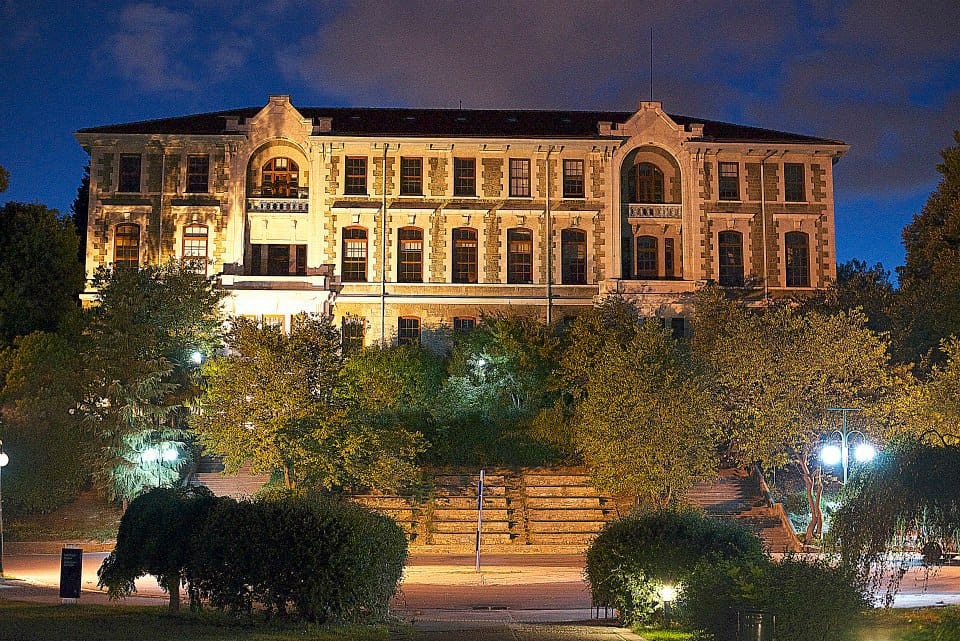Erdogan Cracks Down on Protests Against University Rector

By Adhya Moona, MA Global Media and Communications
On 1 January, Turkey’s President Recep Tayyip Erdogan appointed Melih Bulu as the new rector of Istanbul’s prestigious Bogazici University. Since then, students and faculty members have led peaceful protests against Bulu’s appointment, an academic who is a close ally of the government.
“The decision to appoint Bulu was condemned as ‘undemocratic’ by university students and academic staff, and widely interpreted as the government’s attempt to gain control over the institution and undercut academic autonomy and freedom.”
The decision to appoint Bulu was condemned as ‘undemocratic’ by university students and academic staff, and widely interpreted as the government’s attempt to gain control over the institution and undercut academic autonomy and freedom. After a failed coup attempt in 2016, a state of emergency decree gave power to the President of the country to directly appoint university rectors without any deliberations with the faculty members of the universities.
The Turkish Police has used brute force against the escalating protests. Since early January, over 600 demonstrators have been detained in more than 30 Turkish cities. According to Human Rights Watch, Turkish authorities have placed hundreds of student protesters under possible criminal investigation.
LGBT students have been proactive in the demonstrations. They fear Bulu will repress LGBT organising and jeopardise the safe areas created by LGBT students on campus. A trans woman studying at the university said, ‘There are minority groups who are more affected [by the appointment] than the majority, for instance, LGBTQIs [lesbian, gay, bisexual, transgender, queer and intersex people], especially trans women and men. At a time when trans women like me have very limited safe space, such an appointment seems like an attempt to strip us of this space. We just want to exist.’
On 29 January, Turkish authorities commenced a targeted clampdown on LGBT students and demonstrators after a few students created an artwork depicting the Kaaba, Islam’s most holy site, juxtaposed with LGBT flags and a mythological creature that is half-snake and half- woman on the Bogazici campus.
Interior Minister Suleyman Soylu said on Twitter ‘4 LGBT deviants who committed the disrespect to the Kaaba-i Muazzama were detained at Bogazici University.’ Furthermore, Bulu has closed down the student led LGBT club at the University. President Erdogan has accused the protesters of being ‘terrorists’ and ‘LGBT youth’ working against Turkey’s ‘national and spiritual values.’ According to Amnesty International, some LGBTI+ students have been threatened with rape and subjected to derogatory comments.
Although homosexuality is legal in Turkey, hostility towards the LGBTI+ community has surfaced in the recent years. In the subsequent weeks after the protest, according to the BBC, Erdogan said in a video broadcast to members of his party, ‘We will carry our young people to the future, not as the LGBT youth, but as the youth that existed in our nation’s glorious past.’
At a time when the President of Turkey promised democratic reforms and amending relations with the US, his disparaging language and homophobic insults have tarnished the leader’s international image and drawn condemnation from US President Joe Biden’s administration. The United Nations, European Union and the US have denounced Turkey’s handling of the protests. The UN and EU have insisted on freeing the demonstrators who have been detained.
Moreover, the United Nations Human Rights Council said, ‘We call for prompt release of students & protesters arrested for participating in peaceful demonstrations, and urge the police to stop using excessive force. We condemn homophobic & transphobic comments by officials, inciting hatred & discrimination against LGBT people.’
In response to the international criticism received on its way of managing the protests, Turkey’s Foreign Ministry issued a statement saying, ‘It is no one’s limit to attempt to interfere with Turkey’s internal affairs.’
Photo caption: Bogazici University (Credit: Turkmessage via Wikimedia Commons)




